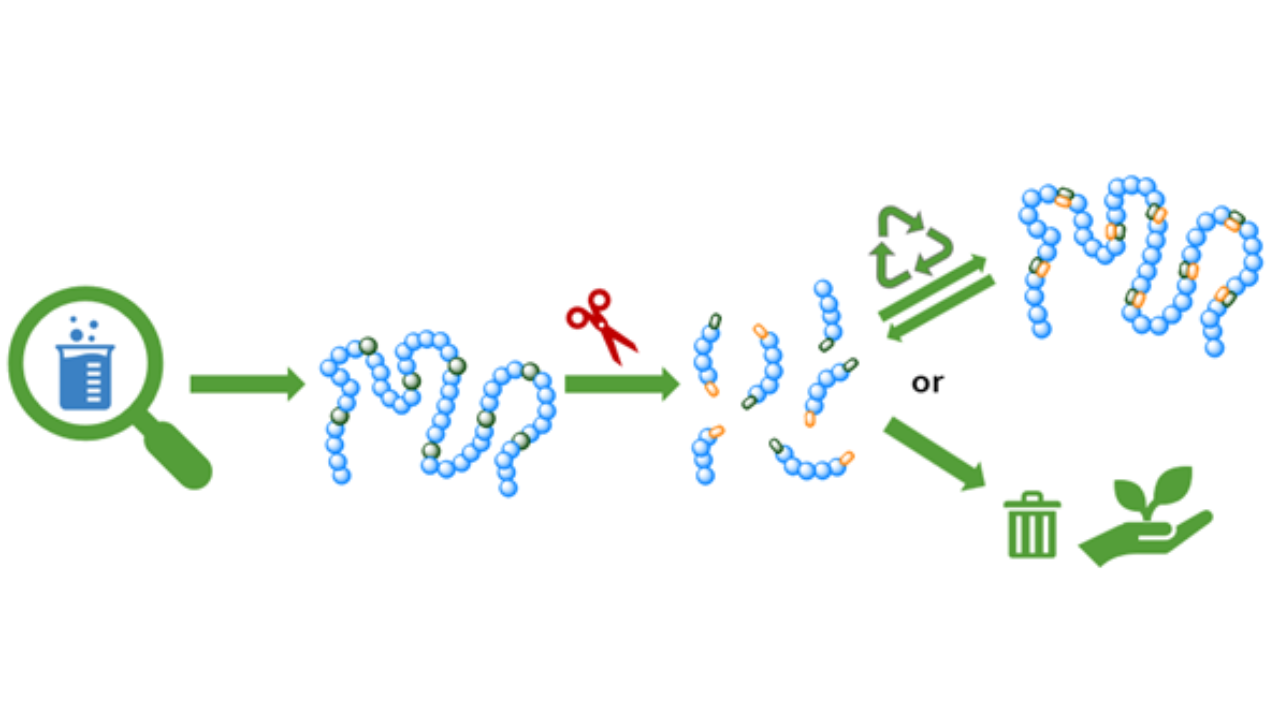A new class of degradable polymers

Plastic is an integral part of our daily lives and consumer habits, and continues to be produced in large quantities, causing ever more waste. The environmental challenges posed by plastic pollution are enormous. Current recycling possibilities are extremely limited, because the root of the problems associated with plastic recycling lies in its manufacture. The question of depolymerisation to reuse monomers (the unitary constituents of plastics) remains unresolved.
Competitive advantages
- Degradable
- Low-cost, reactive monomers
- Properties similar to original polymers
Applications
- Packaging
- Agriculture
- Oil extraction
- Detergents
- Cosmetics, etc.
Intellectual property
- Patent
Development stages
Laboratory validation of the technology
Laboratory

Description
A new class of polymers including a controllable percentage of thioester bonds, which make the polymers degradable
A radical copolymerisation process by ring opening using conventional petroleum-based vinyl monomers (non-degradable) and thionolactone monomers (opening inducing a fragile unit (thioester bond))
The envisaged route to value creation is the creation of a company.

Technical specifications
- Range of polymers containing thioester bonds
- Physical properties of the polymers (crystallinity and thermal stability) unchanged



